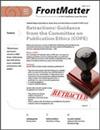Noise reduction of bionic coupling blades of horizontal axis wind turbine
IF 0.4
4区 工程技术
Q4 ACOUSTICS
引用次数: 0
Abstract
Many bio-inspired researches for aerodynamic noise control of wind turbine have been carried out and obtained effective results. Inspired by the silent flight of owl, in this paper, the airfoil of owl's wing and the asymmetric sawtooth structure of the feather have been extracted and reconstructed on the prototype wind turbine blades. The bionic airfoil blade and bionic coupling blade have been designed separately and compared with prototype blade. To obtain the asymmetric sawtooth structure with better acoustic performance, the sawtooth parameters are selected by orthogonal test. The influence of airfoil and asymmetric sawtooth for acoustic performance of blade has been investigated with large eddy simulation method and Ffowcs Williams-Hawkings analogy method. The results show that the bionic coupling blade has a larger surface pressure difference compared with the prototype blade and thus has better aerodynamic performance. The airfoil-structure coupling method can effectively reduce the aerodynamic noise of the blade without affecting the directivity of the acoustic, and optimized blade can reduce the noise by up to 8.42 dB. The blade coupling airfoil has an inhibitory effect on intermediate and high frequency noise. After adding asymmetric sawtooth trailing edge, the noise in the low frequency and intermediate frequency range is further reduced.水平轴风力发电机仿生耦合叶片的降噪研究
针对风力机气动噪声控制的仿生研究已经开展了很多,并取得了很好的效果。受猫头鹰无声飞行的启发,本文提取了猫头鹰翅膀的翼型和羽毛的非对称锯齿状结构,并在原型风力机叶片上进行了重构。分别设计了仿生翼型叶片和仿生耦合叶片,并与原型叶片进行了比较。为了获得具有较好声学性能的非对称锯齿结构,通过正交试验选择锯齿参数。采用大涡模拟方法和Ffowcs williams - hawkins类比法研究了翼型和非对称锯齿对叶片声学性能的影响。结果表明,与原型叶片相比,仿生耦合叶片具有更大的表面压差,从而具有更好的气动性能。采用翼型-结构耦合的方法可以在不影响声的方向性的情况下有效降低叶片的气动噪声,优化后的叶片噪声降低幅度高达8.42 dB。叶片耦合翼型对中高频噪声具有抑制作用。加入非对称锯齿尾缘后,进一步降低了低频和中频噪声。
本文章由计算机程序翻译,如有差异,请以英文原文为准。
求助全文
约1分钟内获得全文
求助全文
来源期刊

Noise Control Engineering Journal
工程技术-工程:综合
CiteScore
0.90
自引率
25.00%
发文量
37
审稿时长
3 months
期刊介绍:
NCEJ is the pre-eminent academic journal of noise control. It is the International Journal of the Institute of Noise Control Engineering of the USA. It is also produced with the participation and assistance of the Korean Society of Noise and Vibration Engineering (KSNVE).
NCEJ reaches noise control professionals around the world, covering over 50 national noise control societies and institutes.
INCE encourages you to submit your next paper to NCEJ. Choosing NCEJ:
Provides the opportunity to reach a global audience of NCE professionals, academics, and students;
Enhances the prestige of your work;
Validates your work by formal peer review.
 求助内容:
求助内容: 应助结果提醒方式:
应助结果提醒方式:


